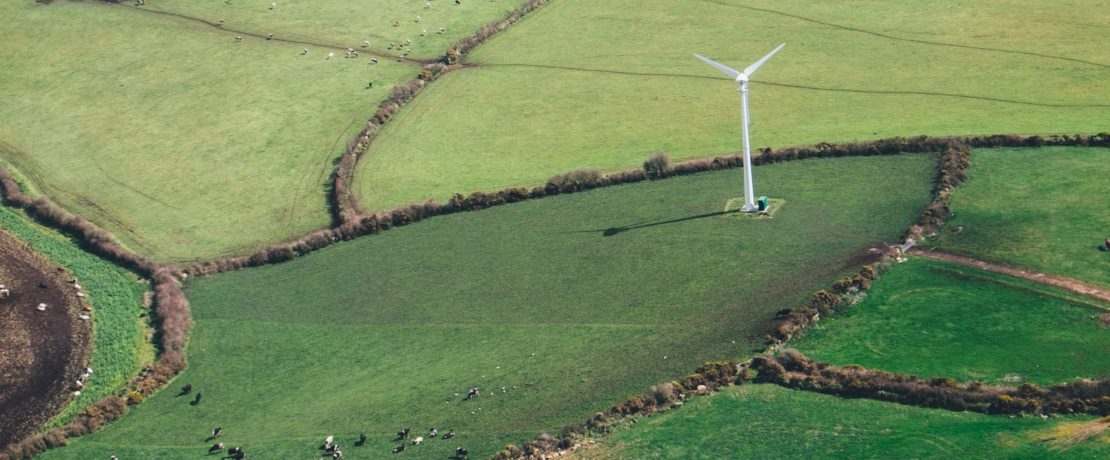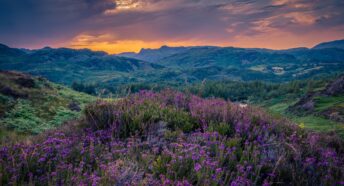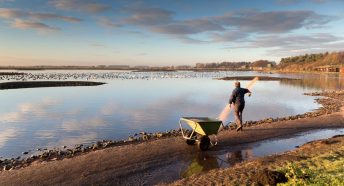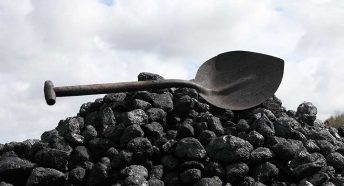Why do we need renewable energy?
At CPRE we are calling for a new generation of renewable energy to power the country. But why is this so important for tackling the climate emergency and why does it matter to the countryside?
The biggest threat to the countryside
Whether it’s the petrol in our cars, the gas used to heat our homes, or the fertilisers used to grow our food, almost every aspect of our lives has become dangerously dependent on activities that pollute our atmosphere with ‘greenhouse’ gases. These greenhouse gases, such as carbon dioxide and nitrous oxide, trap heat around our planet. This changes our environment and causes unstable weather patterns.
If you’ve spent time in the countryside this summer, you will have seen how devastating the impacts of climate change can already be for our much-loved landscapes and the wildlife that inhabits them. The extreme heat baked dry most of our fields and meadows in the south and east of England. What should have been lush landscapes were withering and yellow; more reminiscent of arid scrubland. We faced a stark reminder that Blake’s green and pleasant land could disappear before our eyes – unless we take urgent action.
For the past few months, holloways and woodland across the country have been filling with the eerie drifts of a false autumn from leaves dropped by trees struggling to survive. As a result, our most iconic species, such as the English oak, may soon be lost in many places. Similarly, many of our rare chalk streams and other waterways are regularly vanishing during prolonged dry spells. This throws the survival of more and more wildlife species into doubt, with nowhere left for a mole and vole to mess about in a boat.

It’s not just England’s wildlife at risk either. The increased risk of severe flooding caused by climate change is a serious concern due to the impact on our food security. Recent research by CPRE highlighted that more than 60% of England’s finest agricultural land is within areas at the highest risk of flooding.
Making changes
The quickest way to reduce our contribution to the climate emergency is for all of us to make changes that reduce the amount of energy we need. This needs to happen at a society wide level but we can all play our part in this. For example, we can use public transport rather than driving by car; eat locally grown organic food that isn’t reliant on artificial nitrogen fertilisers, and we can do our best to keep warm without heating our rooms.

But, whether it’s electricity for lights, using the internet, or hot water for showers, we are all going to continue to use lots of power in our daily lives. This is particularly the case in rural areas where public transport is rarely seen, and where older houses are particularly draughty and cold.
How renewables help
This is where renewable energy comes in. Renewable energy is power that we can capture from natural processes, like sunshine, wind and the tides. This can then be converted into electricity. We call it renewable energy because these processes will always be there, unlike supplies of fuels like oil, coal and natural gas, which are used up once they are burned and will one day run out.

Wind, solar and hydro power don’t release carbon emissions, and that is why they are so crucial to reducing the amount of greenhouses gases we are pumping into the atmosphere.
In 2021, low carbon energy sources accounted for just over 50% of all the electricity generated in the UK so we still have a long way to go until we are no longer making the climate emergency worse. Plus, as other parts of our lifestyles change, such as the shift from gas to electric central heating, and the move to electric cars, we are going to need more electricity than ever. That’s why we need to be investing in renewable energy – and quickly.
The benefits of a renewable energy future
Renewables offer a whole range of potential benefits for the future of energy in this country that go beyond tackling the climate emergency:
Renewables can be built closer to where they are needed
Rather than generating large amounts of electricity at a small number of sites and then transferring it across the country, renewable energy schemes can be built much closer to where the demand is. This is much more efficient and means that we lose less of the electricity we generate just through transmission.
Renewables come in all sizes
Unlike the traditional coal power station, renewable energy can be generated at a wide variety of scales. This can range from the massive offshore turbines out at sea, to family homes with a few solar panels on their roofs. This means that we can match the scale of the scheme to the local area and everyone could be given the opportunity to generate some of the electricity they use.
Renewable electricity is cheap
Unlike skyrocketing gas prices, locally produced electricity from wind turbines or solar panels can be generated at a very low price. Living as we do on a windy island, we have huge potential renewable energy resources to tap. If we make the most of them, we could be less reliant on expensive fuel imports and could bring household bills down.
Find out more about CPRE’s work on renewable energy by visiting our renewables area.








